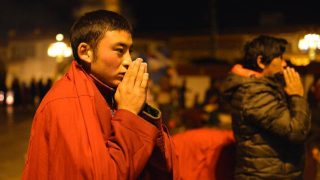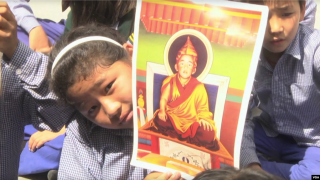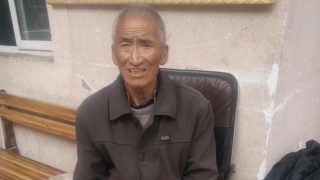Two temples in Shanxi were subjected to crackdowns: authorities have taken full control over one of them, while the other has been turned into ruins, lama arrested.
by Zhang Feng
The clampdown on Tibetan Buddhism is in full force in the year marking the 60th anniversary of the Battle of Lhasa that brutally ended Tibet’s autonomy and forced the Dalai Lama to exile. Two more temples in the northern province of Shanxi succumbed to the CCP’s persecution.
Temple remains in the name only
Jixiang Temple (literally translated as Auspicious Temple) is located on Mount Wutai (also known as Mount Qingliang or by its Chinese name Wutaishan) in Xinzhou, a city of the northern province of Shanxi. The mountain was named a UNESCO World Heritage Site in 2009, and it is one of the Four Sacred Mountains of Chinese Buddhism and home to the most important China’s monasteries and temples.
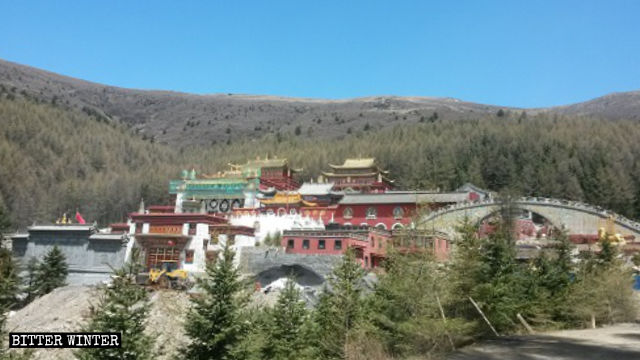
Also known as Qingliang Bridge, Jixiang Temple was built originally during the reign of the Tang Dynasty (618-907) and expanded over the years, adding more buildings. Guru Nenghai (能海上師, January 20, 1886-January 1, 1967), an eminent Buddhist monk, once established a place for performing Tantric rites there, promoted Tibetan Buddhism, and cultivated many eminent monks.
According to knowledgeable local sources, starting in March, police officers were stationed at Jixiang Temple, restricting lamas from traveling or holding religious activities and meeting with the Buddhists residing outside the temple. Before, more than 70 surveillance cameras were installed in the temple. Every pilgrim or tourist who visits the temple must have their ID information registered and faces questioning by police.
A sign “Temple Under Maintenance; No Admittance” has been displayed at the entrance to the temple, and tourists are nowhere to be seen. But in reality, maintenance work on the temple was ordered to be stopped a long time ago.
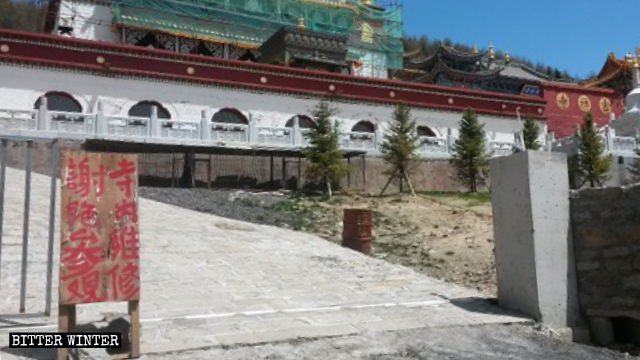
Another source who requested anonymity revealed that the local government repeatedly issued orders, prohibiting temples from receiving lamas from other areas because of the current focus on suppressing Tibetan Buddhism. If a lama comes to seek refuge, he or she must be taken to the county’s Religious Affairs Bureau for investigation. The officials also threatened Buddhists to revoke the temple’s religious venue registration certificate if they go against the regulations.
According to the source, the government wants to investigate all lamas from Tibet who have come to the area to spread Buddhism, because of their fear of Tibetan independence and the Dalai Lama’s influence.
Police bring arrested handcuffed lama to watch temple demolition
Another temple in Wutai county was forcibly demolished in the winter. One lama was arrested, while other believers and masters were dispersed.
According to a villager, the name of the arrested lama is Kabpa. Having come from Ganzi Tibetan autonomous prefecture in the southwestern province of Sichuan, he has lived in Wutai county for more than 20 years.
An eyewitness said that three days after Kabpa was arrested, the local government dispatched approximately 200 personnel, including armed police and firefighters, to demolish the temple’s 16 buildings. Police officers escorted Kabpa, in handcuffs and leg shackles, to the scene, who could not stop crying seeing the temple being demolished.
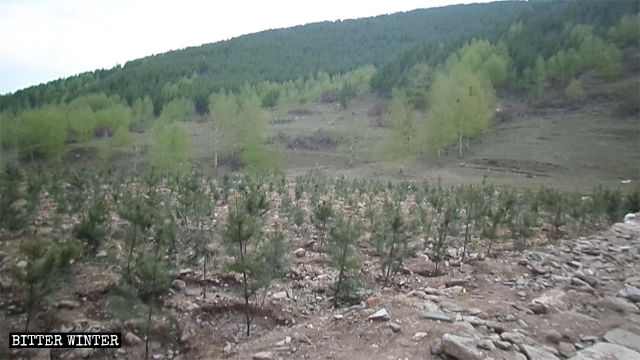
After the temple was turned to ruins, the lama was taken away; his current whereabouts are unknown. Some villagers say he was sent back to Ganzi prefecture; others claim that he is kept in Xinzhou.
Residents report that local police officers started frequenting the village where the temple was located in 2015. Claiming to be “maintaining public order,” in reality, they were looking for visiting lamas or monks. Sometimes, officers were heavily armed and accompanied by dogs. Villagers said that if any out of town masters or monks were discovered, they were immediately sent back to their place of origin, and the housing units they rented were sealed off, a fine imposed on landlords.
Source:BITTER WINTER/Zhang Feng
